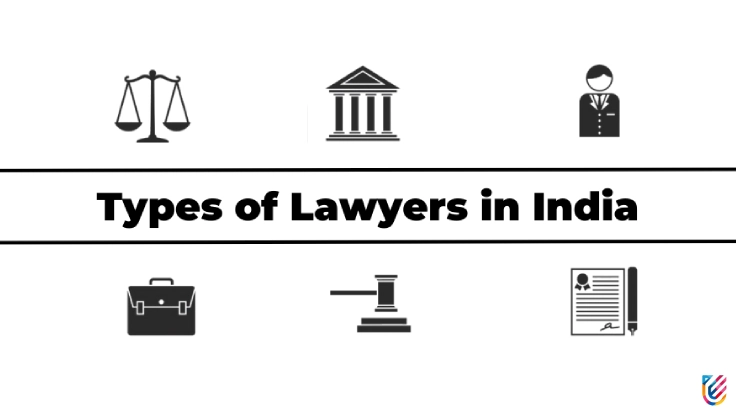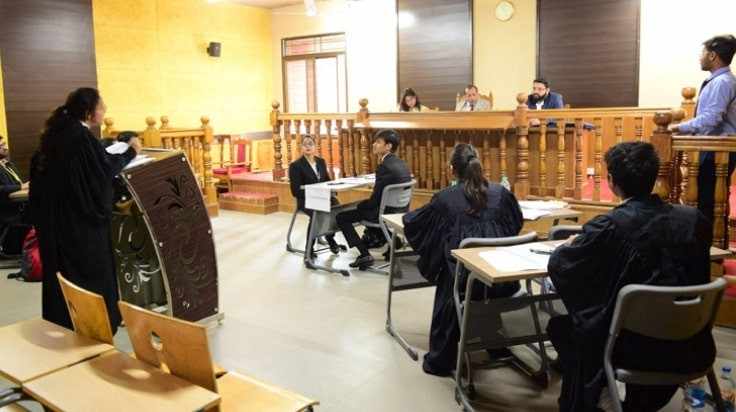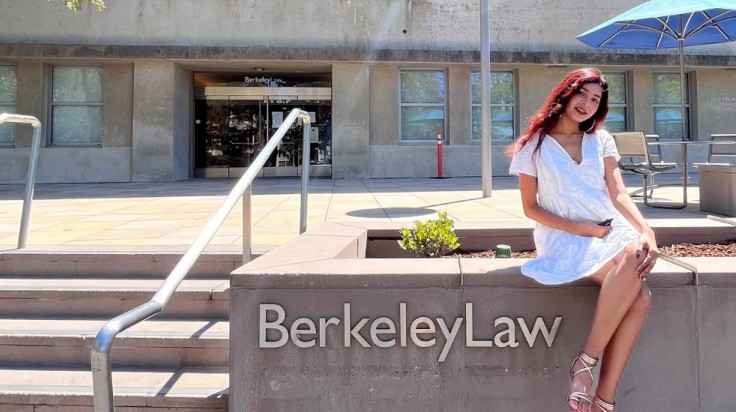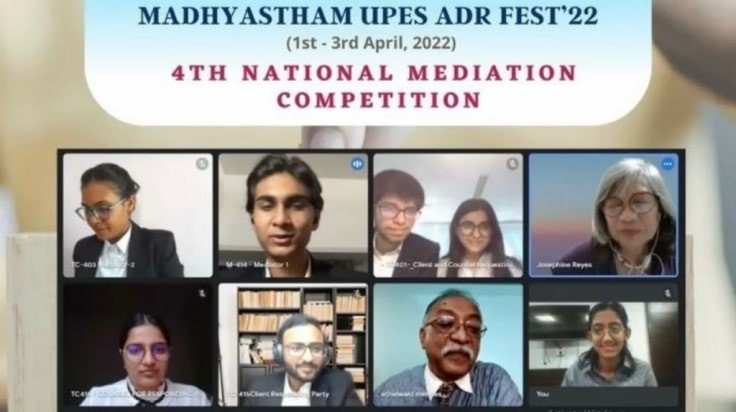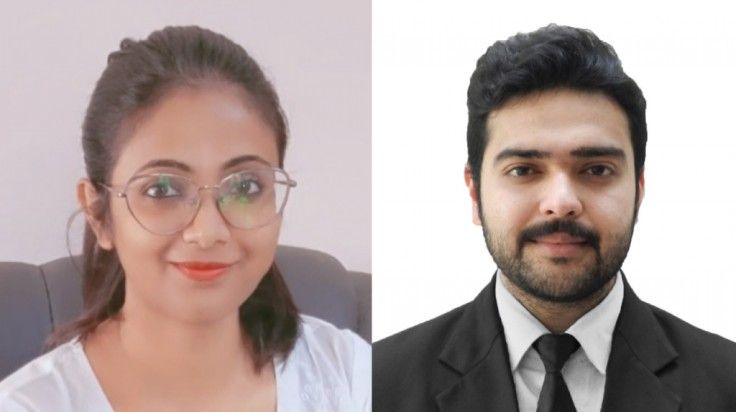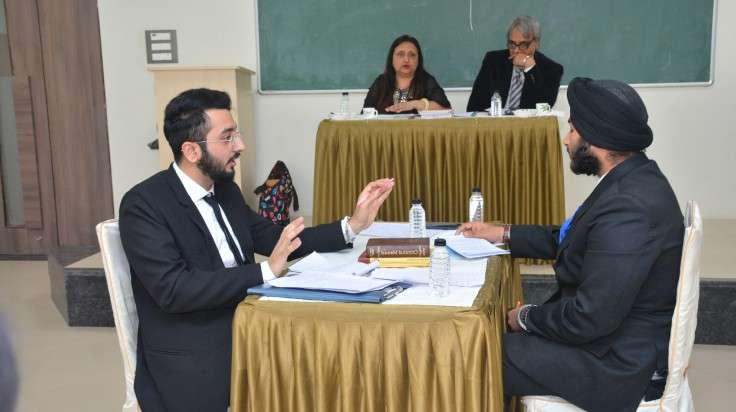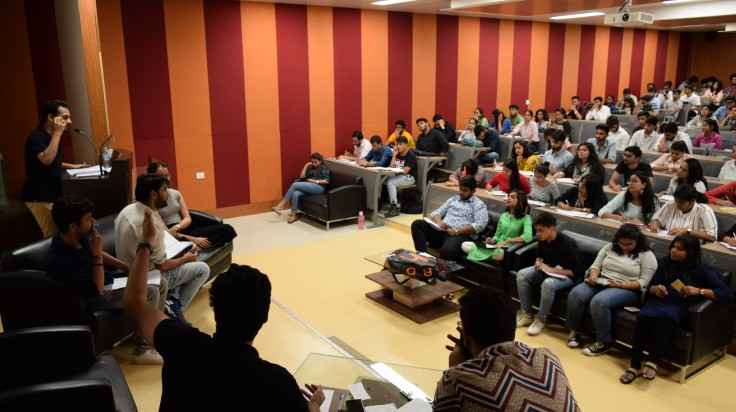4 ways to get the most out of Moot Court competitions
- Jahnvi Pandey and Kanika Goswamy
- Published 05/08/2022

Mooting, researching, debating and writing legal essays are an essential part of a law student’s life. To be a successful lawyer you must ace the strategies behind these coveted contests
A law student learns the fundamental aspects of the society which are less known to the general public and helps them carve out ways to tackle problems legally and ethically. With that being said, a law student not only studies these aspects, but also applies them practically through various activities. Mooting, researching, debating, writing legal essays and interning, all hold immense importance in shaping a student’s skills. Moot Court, in simple words, is a model set up of a court room, and is designed to help the aspiring lawyers to understand the intricacies involved in representing a party in a legal suit.
The things we have learnt in mooting are worth recounting. We participated and won the VII UPES Novice Moot Court Competition, 2020, Best Memorial of VII UPES Novice Moot Court Competition, 2020, and 1st Online Trial Moot Court Competition, 2020. The most important element in the culture of mooting is to participate in various inter and intra competitions, regardless of the outcome. What matters more than winning is to learn and gain experience while being involved in the process. The process of being involved in mooting is an incentive to all the budding lawyers as it enhances their perspective and reasoning that needs to be put forward from both the sides in the given cases.

We participated and won the VII UPES Novice Moot Court Competition, 2020, Best Memorial of VII UPES Novice Moot Court Competition, 2020, and 1st Online Trial Moot Court Competition, 2020.
Based on our winning experience, here are the 4 tips to win Moot Court competitions -
1. Primary approach: As soon as the team receives the moot proposition, two things to be done. Firstly, each member of the team must go through the proposition several times so as to analyze the arguments to be put forward from both the sides. Secondly, each member should focus on the detailed laws that can be used as supporting authorities to the arguments formed in the first instance. The facts of the case should not be moulded in any case. In addition to that, both law and morality should be kept in mind while drafting the arguments with supporting authorities.
2. Preferred sources for drafting memorial: Regarding the facts of the case, the moot proposition itself is the only document that needs to be referred to for drafting the memorial. For finding the laws and the supporting authorities, library or e-library of law needs to be referred to. As soon as the team gets to know the law which is in relation with the moot proposition, the bare acts for those particular laws need to be referred to for drafting Statement of Jurisdiction and the respective contentions. In order to mention the supporting authorities, key sources should only be preferred such as SCC Online, Manupatra, Lexis Advance, JSTOR, etc. The major takeaway while drafting the memorial is to follow the stated citation style mentioned in the guidelines of the competition. The final memorial should be in a neat and presentable format which can be accessed by the judges easily.
3. Understanding convention for speeches: The preparation for the rounds begins with jotting down important points and preparing a speech. Each speaker should prepare an ideal speech which covers all the possible legal aspects one can think of. Mock trials are the key to a spot-on speech. The researcher along with the student mentor should actively interrogate the speakers not only on questions of law, but also the ethical and moral issues involved during mock trials. Such trials not only help in improving speech and speaking ability, but also help a speaker formalise his conduct in front of the judges. The prayer is the heart of the speech. It is very important for participants to know what they plead in prayer as that only will be granted to them. So it’s advisable to carefully draft the prayer.
4. Tackling the final showdown: The presentation in the final stage involves correct body language, command over the language, and most importantly, confidence. Confidence to answer the question posed by the judges is what makes or breaks a case. It is possible that one may not know an answer to a question, but the difference is made when a participant answers confidently and convincingly. And, as already explained earlier, for this, practice becomes very important. One should make sure to memorise certain parts of the speech so as to be able to maintain eye contact with the judges. The first speaker needs to be thorough with jurisdiction of the case and the second speaker needs to recite the prayer exactly mentioned in the memorial, apart from tackling the important contentions of the case.
Law students can ace mooting if they follow the takeaways mentioned above and be focused in hoping for the best from the hard work put in for the competition.
Jahnvi Pandey and Kanika Goswamy
The writer is Jahnvi Pandey & Kanika Goswamy, students, BA, LLB, UPES School of Law (2019-24)
Tags
- Career prospects after LLM
- LLM in International Law
- upes school of law
UPES Admission Enquiry
Subscribe to UPES Blogs
Join our community for exclusive stories, insights, and updates
By clicking the "Subscribe" button, I agree and accept the privacy policy of UPES.









